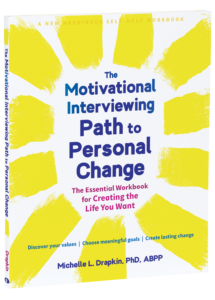New Year’s Resolutions – Advice From Our Team
As the calendar turns to a new year, the age-old tradition of making resolutions comes into focus. We often find ourselves reflecting on the past year’s triumphs and challenges, eagerly anticipating a fresh start. The idea of setting New Year’s resolutions is a time-honored practice, filled with aspirations for positive change. Yet, as the initial enthusiasm wanes, many resolutions fall by the wayside. How can we break free from this cycle of good intentions gone awry?
We asked our team, “What is your best advice for setting and keeping a New Year’s resolution?” Discover the varied approaches of each of our clinicians as they offer valuable insights into mastering the art of resolution setting. And, like all advice, it’s up to you what you take and what you leave. This is your life and you are the ultimate expert here.
Dr. Christina Constrastano
Small things done consistently(ish) add up to big changes! My mind, like many, often tells me I have to set a lofty goal for it to count and then inevitably I can’t keep up the big behavior change and give up. My mind also tells me that doing small things won’t matter enough or will take too long to see progress…but just because I think it, doesn’t mean it’s true! I’ve found for myself and my patients that when we aim to make teeny tiny changes on a regular basis, we are more successful in sticking to it and gaining the momentum that leads to the bigger changes we want. I say consistently(ish) because we are all human and going to have times when we get off track. Stuff happens! Expect it and get back on track ASAP!
Dr. Andrew Keenan
Take time to reflect on what makes this resolution important to you. What’s your “why” or “value” that is driving this resolution? This will serve as your compass for the road ahead! On that road, you’ll inevitably experience challenges and setbacks while pursuing this piece of behavior change. That’s just a part of the process. When you work towards addressing each challenge, remind yourself of your commitment to your “why” and/or “value”.
Dr. Lara Aunio
A new year brings a lot of mixed emotions of excitement, ambition, grief over the past year, and for some, even dread. If you REALLY feel like a New Year’s Resolution will get you on track and boost your motivation, make it SMART. SMART, meaning Specific, Measurable, Attainable, Relevant, and Timely, is an evidence-based technique to set goals that promote realistic and relevant goals that you can achieve within a timeframe. Most (almost 80%) of people lose their motivation for their resolution by February! So by making it SMART, we are more likely to feel good that we can get the job done.
Jamie Schwartz, LCSW-R
Start with re-framing resolutions to integrate a new behavior into your daily life. Research shows it takes 66 days to form a new habit, so it is important to identify realistic, small goals. Once your goals are established, you can turn them into habits by setting a daily action plan. Commit to working on one goal at a time until you have mastered it, reducing the likelihood of feeling overwhelmed with a long list of goals. Know that occasional slips occur when working towards your goals; utilizing those as opportunities to learn from. Finally, to avoid falling into the self-blame/shame cycle, practice self-compassion and forgiveness when those slips occur.
Dr. Teri Preddy
Setting a New Year’s resolution can be exciting but also can be intimidating or daunting. We might find ourselves wondering, “Can I REALLY stick to this goal this year?” Most people have had some experience with not following through on a resolution. It’s important to be specific about what behavior you want to engage in.
For example, it’s easier to keep track of a goal to eat more fruits and vegetables at each meal, rather than saying, “I’m going to eat healthier.” What does eating healthier really mean anyway? More importantly, we often get rigid about our goals and “doing it right” or “all the way.” It’s important to bring some self-compassion and flexibility to working on our goals if we’re going to make long-term changes.
For example, if we set a goal to go to the gym 3x per week, we might begin to get discouraged when stress and life get in the way of getting to the gym. This can lead people to abandon their goals altogether! Instead, be kind to yourself and flexible. You might be able to do a 10-minute workout between meetings, take a 10-minute yoga break or walk at lunch, and maybe squeeze in 10 minutes to lift some hand weights after dinner is cleaned up. Over the week, multiple 10-minute intervals add up to a lot more than that 45 minutes at the gym. Be willing to do a shorter workout or be flexible with your workout option (you don’t have to always give 100%!). You might even end up looking forward to your movement breaks!






